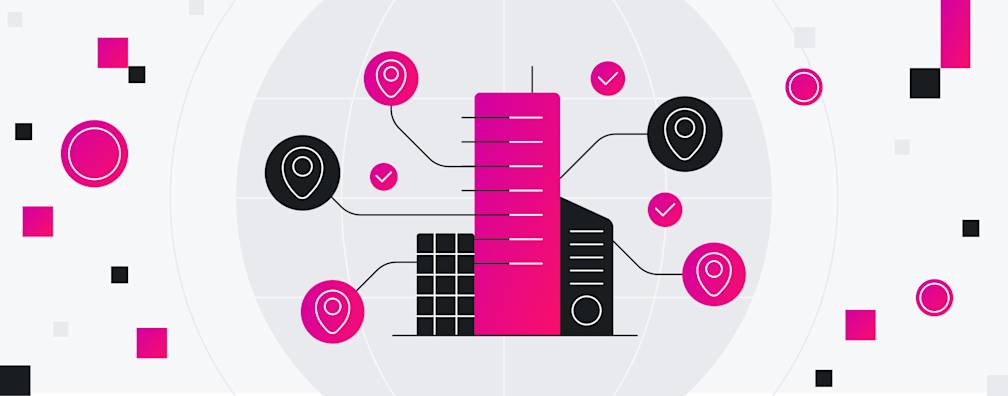CHAPS vs. BACS payments: What’s the difference?

We’re in a pretty amazing time right now where we can open up a browser on our computer, head to our banking website, and send money to anyone, anywhere in the UK.
This is great for businesses, as it simplifies how you send and receive payments. For the most part, you don’t even have to leave your office.
But as a business account owner, you’re typically transferring large sums of money on specified deadlines. You’re doing more than simply, say, paying back your mate for what you owe from the pub the other week.
When making these types of high-volume or high-value transfers through your bank, there are two main payment networks you’ll be using: CHAPS vs BACS.
So let’s look at the difference between BACS and CHAPS, and what this means for your business.
What is a CHAPS payment?
Despite its jaunty acronym, the full name is quite dry. CHAPS stands for Clearing House Automated Payment System.
CHAPS is the bank-to-bank transfer system that runs through the SWIFT network. It’s typically reserved for once-off, high-value payments that need to be sent and received on the same day. So things like purchasing property, paying tax, or purchasing vehicles for your business. CHAPS payments start from £10,000 and upwards, with no transfer caps, and no upper transfer limit.
These types of payments tap into a wide network, with over 30 direct banking participants and more than 5,000 financial institutions across the country able to make and accept CHAPS payments.
What is a BACS payment?
BACS stands for Bankers Automated Clearing Services.
This is the bank transfer method that handles all direct debit and credit transactions. Because of this, it’s the most common bank transfer method used by UK businesses.
BACS payments take longer than CHAPS payments, and are normally used for high-volume, low-value transactions (by banking standards, at least). BACS payments cap out at £250,000 per transfer.
You use the BACS payment network for those routine payments you make on a daily basis. Think regular bank transfers, payments to suppliers, employee wages, and pension payments.
The BACS system has been in operation for over 50 years, established in 1968, making it the system that everyone has grown up with and understands.

So, what’s the difference between BACS and CHAPS?
Basically, it all comes down to the service you’re after.
CHAPS payments are for high-value, time-sensitive payments, such as a payment on a property or a large, expensive business asset. It’s for making payments you need immediately, that day.
BACS payments are for routine, everyday payments that aren’t bound by time, such as paying your suppliers or sending your staff their weekly wages.
Which transfer method is faster?
BACS payments take anywhere from two to three days to complete, so you wouldn’t choose this method if you were in a hurry.
CHAPS payments are faster by miles, offering bank-to-bank transfers within hours. You’re usually able to get same-day payment if your transfer is made prior to 3:00-5:00pm that day (depending on whether you choose in-person or online). Otherwise, next-day payment is available.
Which payment method is more expensive?
BACS payments are one of the cheapest ways to transfer money between banks. You can expect to pay anywhere from 5-50p (plus any additional fees charged by the banks) per transaction.
CHAPS payments, on the other hand, are much higher. This is because your bank or payment partner is required to pay for access to and maintenance costs for the software and hardware needed to complete your transfer. For CHAPS payments you can expect to pay anywhere from £25-£35 per transfer. As such, you probably wouldn’t be making a high volume of these types of payments.
Airwallex international payments is a faster, cheaper alternative to both of these
Airwallex exists as an alternative to both of these methods. Our goal is to make it as easy as possible for you to make your payments. And we don’t think it’s right that you’re penalised simply for paying your bills, or your suppliers.
So, with this in mind, Airwallex doesn’t charge you any fees for local or international money transfers services. No matter the value you’re sending, regardless of the number of payments you’re making, you’re able to transfer money completely free of any fees.
You get practically instantaneous, same-day transfers on all your transactions, too. This is because we use your local payment networks, not the SWIFT network, so your money is received in one business day or less—without the hefty fees.
So if you’re looking to find a difference between BACS and CHAPS, try Airwallex foreign currency accounts for international business payments instead for a cheaper, faster alternative.
Get in touch with us today for a demo, and see how we can help you take the hassle out of making your business payments.

Related article:
Share

Joe Romeo is responsible for scaling our Airwallex's product adoption in the UK and the world. An all-around growth enthusiast, Joe's speciality lies in SEO, organic acquisition and making lasagna.
View this article in another region:Hong Kong SAR - EnglishHong Kong SAR - 繁體中文SingaporeGlobal
Related Posts

WorldRemit Account Review (2025): Features and fees
•4 minutes

ERP integration: everything a business needs to know
•8 minutes